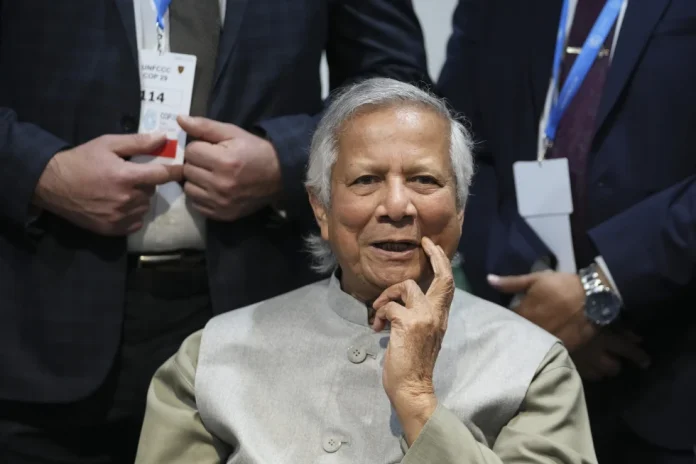Bangladesh’s caretaker government chairman and Nobel Peace Prize laureate Muhammad Yunus said his administration will seek the extradition of ousted Prime Minister Sheikh Hasina from India, Bangladeshi media reported on Sunday.
Yunus said on Sunday:
We will seek the return of fallen autocrat Sheikh Hasina from India. I have already discussed the matter with the chief prosecutor of the International Criminal Court Karim Khan.
Yunus said not only the deaths during the student uprising but all other human rights violations, including alleged enforced disappearances during Hasina’s rule, would be investigated. Bangladesh has sought the help of the world police organisation Interpol in issuing a red notice for the arrest of Hasina and her accomplices.
Bangladesh’s interim leader is also pushing for the International Criminal Court to take up Hasina’s case. Yunus said the most important task is to hold fresh elections to hand over power to an elected government, but he did not give a timeframe in which this would materialise.
Spiral of escalating protests in Bangladesh
On August 23, Bangladesh’s interim government filed more than 50 charges of serious crimes against former Prime Minister Sheikh Hasina.
On August 16, the students who ousted the prime minister rejected calls by the two main political parties for quick elections and are considering forming their own political force to carry out sweeping reforms in the country. The country is now ruled by an interim government headed by Nobel Peace Prize winner Muhammad Yunus, assisted in part by leaders of student organisations.
On August 5, Sheikh Hasina resigned and left the country with her sister Rehana, seeking asylum in the UK. According to media reports, thousands of protesters stormed her Ganabhaban residence in Dhaka afterwards. The rioters soon began smashing the house of the country’s Home Minister Asaduzzaman Khan Kamal.
The protests began in Bangladesh in late June and were held as peaceful rallies. Their participants expressed dissatisfaction with the return to the quota system for filling government jobs, which was in place from 1972 to 2018 for family members of those who fought in the 1971 war of independence from Pakistan.
The Bangladesh High Court decided to reinstate it by reserving 30 per cent of the posts. On July 19, the state government was reported to have cut off internet access across the country amid growing student unrest.
